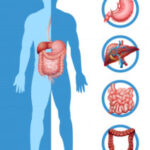In today’s fast-paced world, maintaining a healthy lifestyle is more crucial than ever to prevent cardiovascular diseases, including heart attacks. The good news is that making simple but effective lifestyle changes can significantly reduce your risk. Let’s explore some key adjustments you can incorporate into your daily routine to promote heart health and safeguard against heart attacks.
- Nourish Your Body with a Heart-Healthy Diet: A well-balanced diet is the cornerstone of heart health. Opt for a diet rich in fruits, vegetables, whole grains, lean proteins, and healthy fats. Minimize your intake of processed foods, sugary snacks, and excessive salt. Consider the Mediterranean diet, known for its heart-protective benefits.
- Stay Active and Exercise Regularly: Regular physical activity is essential for cardiovascular health. Aim for at least 150 minutes of moderate-intensity exercise or 75 minutes of vigorous exercise per week. Activities like brisk walking, jogging, cycling, or swimming can elevate your heart rate and improve overall cardiovascular fitness.
- Maintain a Healthy Weight: Carrying excess weight puts additional strain on your heart and increases the risk of heart disease. Achieving and maintaining a healthy weight through a combination of a balanced diet and regular exercise is one of the most effective ways to reduce this risk.
- Kick the Habit: If you smoke, quitting is one of the best things you can do for your heart. Smoking damages blood vessels, raises blood pressure, and contributes to the buildup of plaque in the arteries. Seek support from friends, family, or a smoking cessation program to increase your chances of success.
- Limit Alcohol Consumption: While moderate alcohol consumption has been associated with certain heart benefits, excessive drinking can lead to high blood pressure and heart failure. If you drink, do so in moderation – one drink per day for women and up to two drinks per day for men.
- Manage Stress: Chronic stress can contribute to heart disease. Incorporate stress-management techniques into your daily routine, such as deep breathing exercises, meditation, yoga, or spending time in nature. Finding healthy outlets for stress can have a positive impact on both your mental and cardiovascular well-being.
- Get Quality Sleep: Aim for 7-9 hours of quality sleep each night. Poor sleep is linked to an increased risk of heart disease. Establish a relaxing bedtime routine, create a comfortable sleep environment, and avoid stimulants like caffeine close to bedtime.
- Regular Health Check-ups: Regular health check-ups can help monitor and manage risk factors for heart disease, such as blood pressure, cholesterol levels, and diabetes. Work closely with your healthcare provider to develop a personalized plan for heart health.
Conclusion: Preventing a heart attack involves a holistic approach to well-being. By adopting these lifestyle changes, you not only reduce your risk of cardiovascular diseases but also enhance your overall quality of life. Remember, small, consistent adjustments can lead to significant improvements in heart health. Start today for a healthier and happier tomorrow.



